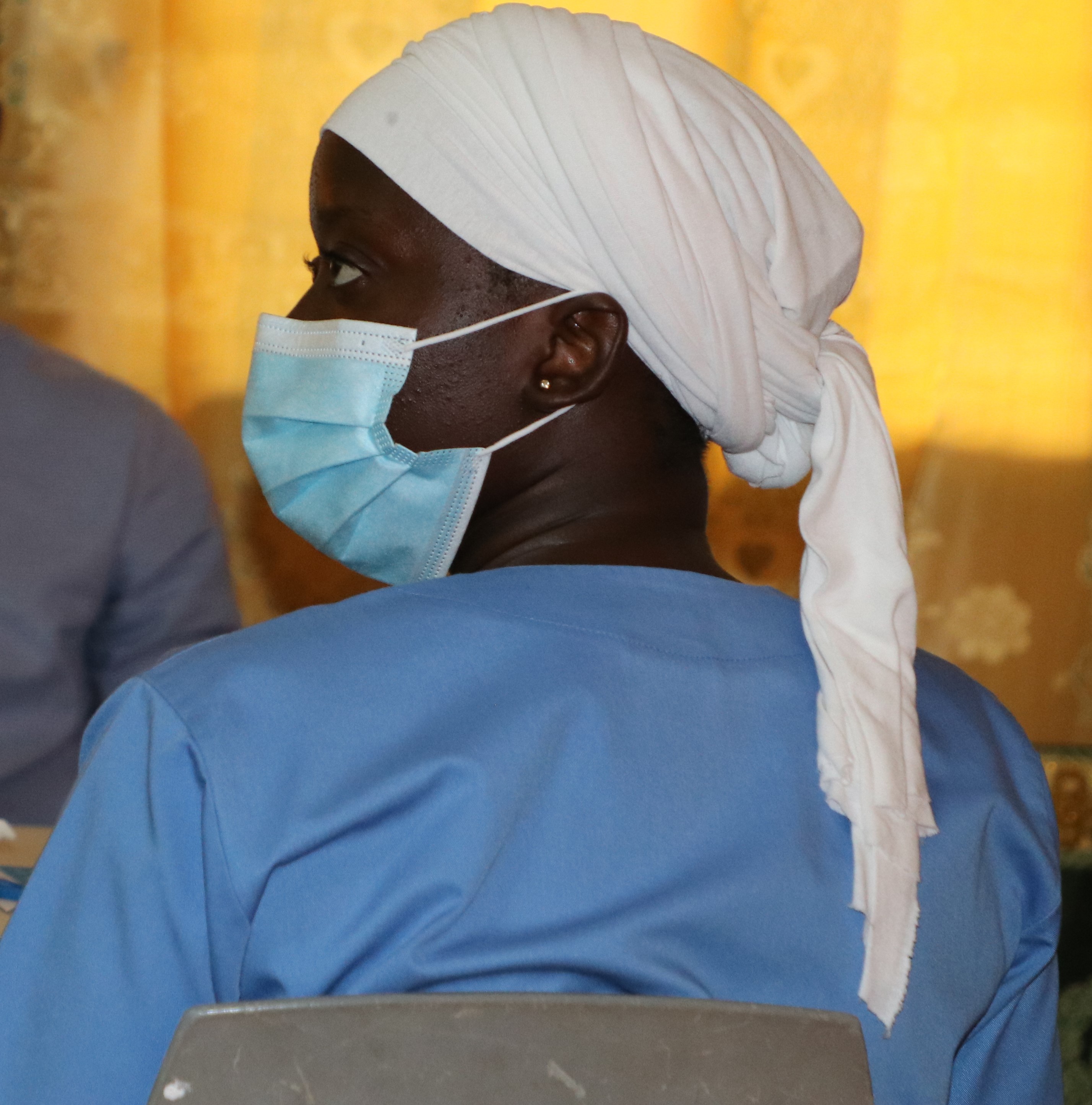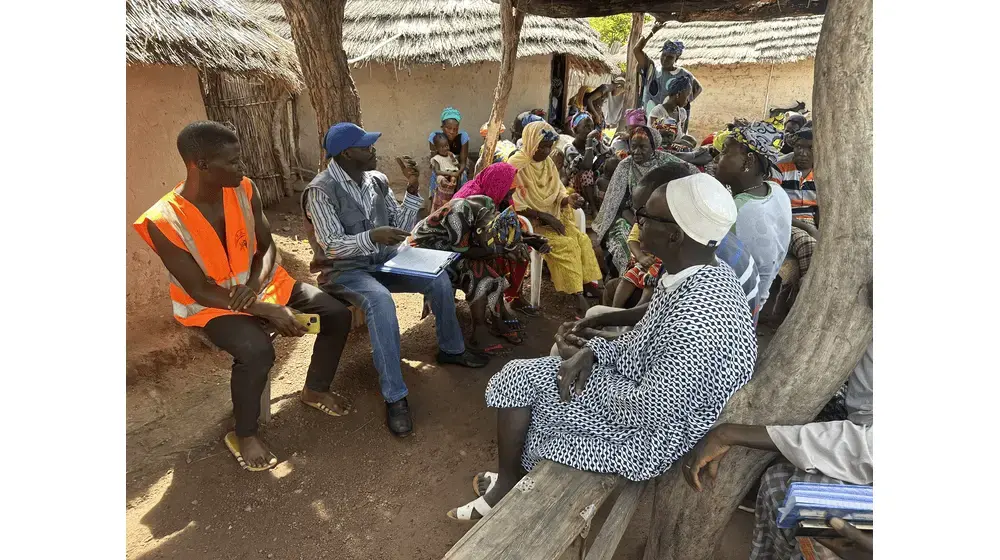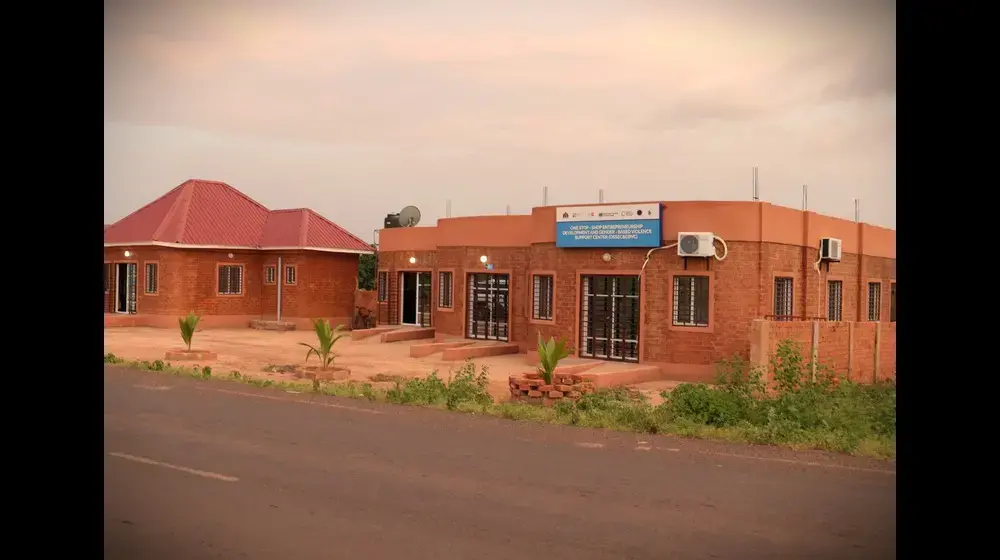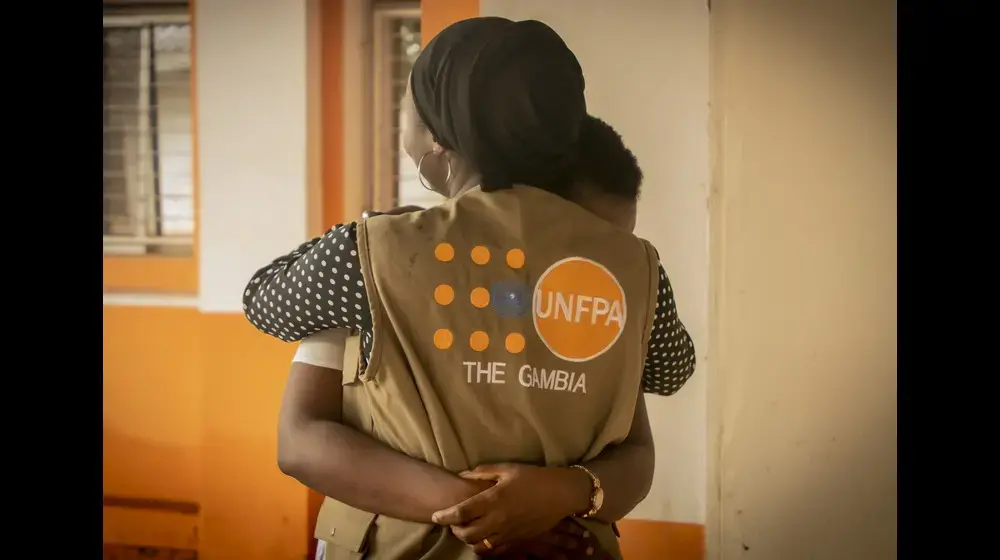To ensure a functional Sexual and Gender-Based Violence response mechanism, it is essential that the capacities of all persons who are in the line of care delivery to survivors are built. This will help ensure that quality emergency care is delivered through a survivor-centered approach and contribute towards the prevention of violence in communities.

With support from UNFPA The Gambia through the UN Peacebuilding funded project on Strengthening Community Access to Justice, Community Policing and Effective SGBV Response, the Network against Gender-Based Violence (NGBV) on 21 September 2020, embarked on a four-day training of 20 health care workers on the Clinical Management of Rape. The participants drawn from various health facilities in rural Gambia were trained to ensure that responses and the delivery of emergency care to rape victims are adapted to various situations and hinged upon national laws and policies regarding sexual violence.
Speaking during his session on the importance of history taking and patient observation, Dr. Mbasirehnding Njie of the Edward Francis Small Teaching Hospital, highlighted that health care workers are vital in efforts to ensure survivors of SGBV receive the care and justice they deserve. This he said is because their expert opinion is usually sought in courts and it is highly dependent on the quality of patient observation and history taking. In seeking this information from survivors, he noted, it is important that health care workers are empathic, able to make the survivors comfortable enough to explain their ordeal and ensure that all the vital information and evidence is documented.
According to Dr. Babanding Daffeh of the Serrekunda General Hospital, it is not the health care provider’s responsibility to determine whether or not the crime being alleged in fact happened. That, he emphasised is a legal issue. However, he highlighted that health care workers must, with the consent of the person being cared for collect all relevant information that may be needed in subsequent investigations.
As the lead UN agency working on sexual and reproductive health and rights, UNFPA has critical opportunities to reach women and girls affected by violence. The agency continues to support government and civil society partners in strengthening the country’s GBV response mechanism, support programmes aimed at promoting the prevention of SGBV in communities and empowering women and girls to live dignified and healthy lives free from violence.
Media contact:
Haddy Jonga – Programme Analyst Communication, UNFPA The Gambia jonga@unfpa.org





